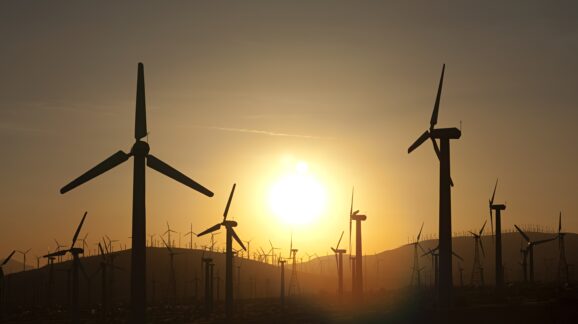McCarthy-Biden debt-ceiling deal fully funds the climate-industrial complex

Photo Credit: Getty
The deal to raise the debt ceiling announced Saturday by the White House and House Speaker Kevin McCarthy (R-Calif.) drops the provisions in the House-passed Limit, Save, Grow Act that repealed the “Inflation Reduction” Act’s energy subsidies and climate policies. This is bad news for electric consumers in particular.
Continuing federal handouts to the climate-industrial complex for another ten years will encourage continuing massive over-investment in wind turbines and solar panels (and lots of other commercially unviable technologies). That means less reliable supply and higher costs. This is not speculation. The states that have enacted policies to require more renewable electric generation already have, with a few exceptions, much higher electric rates than the national average, while the states that have been slower to get on the green energy bandwagon have the lowest rates.
For example in two of the states that have the biggest renewable energy mandates, residential electricity averaged 27 cents per kilowatt hour in California and 32 cents in Massachusetts in March, according to the Energy Information Administration’s latest Electric Power Monthly. By contrast, states that still rely mostly on natural gas and coal generation had rates in the 10 to 15 cents per kWh range.
Despite claims that wind and solar are now cheaper than natural gas and coal, the climate-industrial complex lobbied hard and successfully last summer to get their tax subsidies extended and expanded in Sen. Joe Manchin’s (D-WV) “Inflation Reduction” Act. That’s because the total costs of these intermittent sources are higher once the costs of building reliable backup power for periods when the sun isn’t shining and/or the wind isn’t blowing are included. Without guaranteed subsidies, very few wealthy investors would be forming limited partnerships to build wind or solar factories.
Besides paying higher electric bills, consumers are going to have to get used to more frequent and longer blackouts as a result of the Biden-McCarthy deal. The buildout of wind and solar installations based on federal subsidies and state mandates is already stressing the electric grid. To quote the first sentence of the National Electric Reliability Corporation’s recent press release: “NERC’s 2023 Summer Reliability Assessment warns that two-thirds of North America is at risk of energy shortfalls this summer during periods of extreme demand.”
True, the Biden-McCarthy deal does include some welcome permitting reforms that could speed up approval of some conventional as well as renewable energy projects, although nearly everyone quoted in the press has described the reforms as “modest.” The practical effects of permitting reform are not all good when combined with the subsidies. Speeding up wind and solar and other subsidized energy installations will increase federal subsidy handouts, thus increasing the federal deficit, while at the same time increasing energy costs, thus depressing overall economic output.
It is worth recalling that not a single Republican in the House or Senate voted for the “Inflation Reduction” Act. Speaker McCarthy’s fact sheet in April on the Limit, Save, Grow Act sums it up beautifully: “President Biden’s uncapped green energy tax credits and subsidies represent a massive corporate giveaway–including for wealthy Americans who can already afford expensive electric vehicles–that will distort the market and cause energy and utility prices to soar for everyday consumers.”
Speaker McCarthy owes it to all of us to say why he has changed his mind.